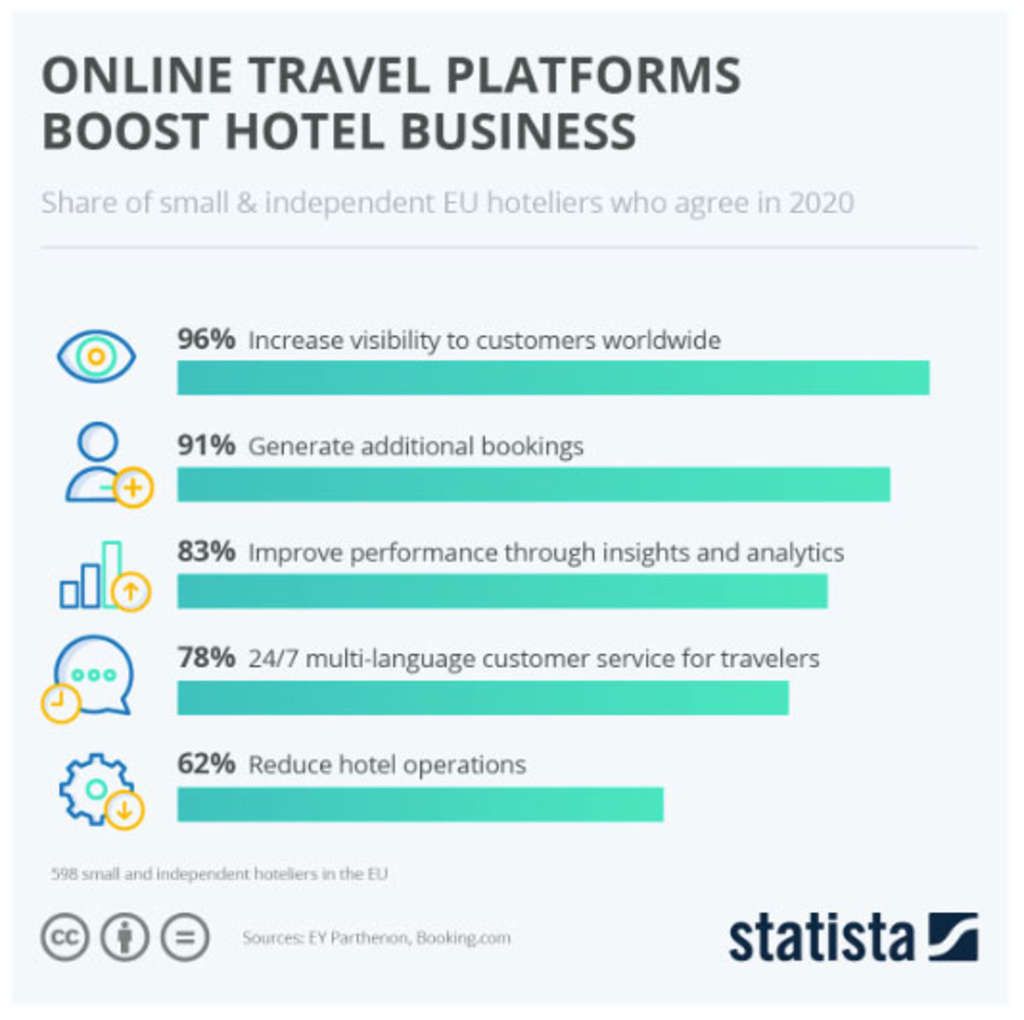Three ways the travel sector can redefine globalisation

Are we witnessing the end of globalisation? According to an Ipsos-Mori survey in 25 countries, the number of people agreeing that globalisation is a good thing dropped by 10 percentage points during Covid – from 58% to 48%. Increasingly, a more interconnected world is perceived as benefiting a few centres of tech innovation and venture capital, at the expense of ordinary people around the world.
While this perspective contains some truth, it’s not the whole story, because companies that operate globally can create value that local or regional companies would struggle to unlock. International business can and must rise to the challenge of sharing with local communities the benefits that accrue from the globalised business model.
What this means will differ for each sector and company. At Booking.com, we believe that the travel sector has a role to play in redefining globalisation, making it about local opportunities on a global scale, rather than global reach from a few locations.
Over the years, as the company grew from a small Dutch startup to an international ecommerce platform, we’ve identified three ways our global operations add genuine value to local economies and society.
1. Facilitating inter-cultural exchange
The original promise of globalisation included knocking down barriers and increasing people’s understanding of different cultures, histories, and traditions. Travel is uniquely placed to do this: when we experience other cultures first hand, we gain empathy and feel more at home in the world.
A 2019 study in the UK found that 58% (nearly 6 out of 10) Brits who travel regularly say they trust those from other countries. Regrettably, but not surprisingly, half as many people make a similar statement (only 37%) if they don’t often go abroad.
At Booking.com, we surveyed over 30,000 people from 32 countries for the latest edition of our Sustainable Travel Report 2022, asking what they are looking for in their travel experiences. Two-thirds agreed they want “authentic experiences that are representative of the local culture”.
A third, however, said that they didn’t know how to find travel activities that would give back to local communities. Global intermediaries have a role in matching this demand with relevant service offerings. We do it through an initiative called the Travel Sustainable badge. It is a one-click digital tool that gives travellers the option to filter their searches on Booking.com. Besides customer convenience, this is an incentive for hotels large and small to accelerate their transition towards more sustainable practices, to showcase their achievements and to highlight how they’re creating positive impacts within local communities.
2. Widening inclusiveness
Diversity in all its forms is a core value at Booking.com and our parent company, Booking Holdings. Across the group of the portfolio companies, we have colleagues from over 140 countries and half of our staff – as well as almost a third of our leaders – are women. Only by having a diverse workforce can we hope to recognize and meet the diverse needs of service providers and customers alike.
Nearly two-thirds of our LGBTQ+ travellers, for example, tell us they feel the need to consider their safety as an LGBTQ+ person when picking a holiday destination. Our Travel Proud scheme works with properties to help them be more inclusive, so customers can travel with peace of mind.
A diversity of opinions, experiences and perspectives within Booking.com is vital to ensuring that we are able to recognise and address the needs of everyone. The benefits of globalisation should be shared by all; and we are eager to make this happen.
3. Benefiting small businesses
Travel accommodation is a service that cannot be outsourced and offshored: it’s provided by local staff, often employed by a small or medium-sized enterprise – especially in Europe, where 63% of total room capacity is independent. Travellers spend money in local shops and restaurants, which pay taxes to local governments.

While international companies are often accused of trying to outcompete local businesses, we see ourselves as a genuine partner in a fair exchange: we take a commission on booking and in return we provide the tools for the local accommodation providers to compete effectively in the digital age. Not only do the hoteliers get instant global visibility, they also get free access to a whole suite of digital tools. As explained in an EY-Parthenon study:
“Online travel agencies typically provide a range of adjacent value-added services to the accommodation sector, from reservation modules, payment infrastructure and customer service support to analytics and insights on market dynamics and customer preferences. These services are complementary and covered through the fee an accommodation pays (only) in the event of an actual reservation”
Bottomline
To address the problem, it must first be articulated and acknowledged. As the latest Global Risk Report by the World Economic Forum has found “disillusionment with globalisation has fuelled nativist discourses and national interest policies”.
Multinational corporations have a responsibility to find ways to tackle this disillusionment rather than feed it. Together, we can reimagine globalisation and hold ourselves to account. In the words of our CEO, Glenn Fogel, “travel can be a powerful force for good, bringing enhanced cultural understanding and socio-economic opportunities for communities”. At Booking.com, we continue to work hard to implement this vision.
